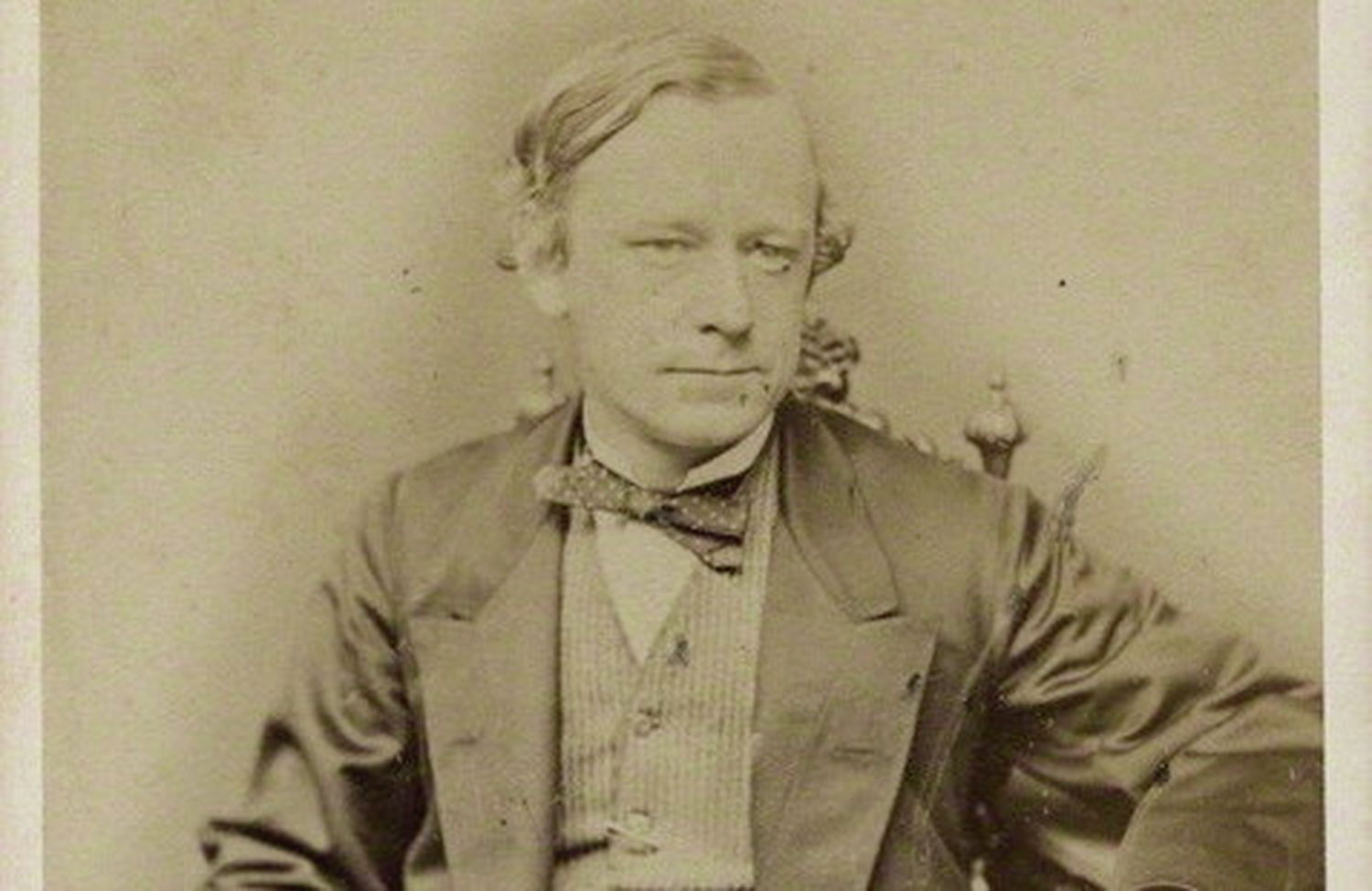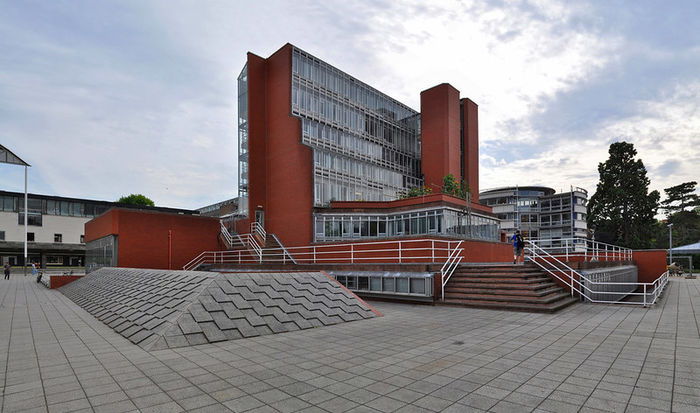To exist in Cambridge is to be surrounded by great minds, not all of which are living. Death is only an inconvenience: if your mind is one day deemed to be great enough, you may with any luck get your name attached to a staircase, a hall, or a lecture-block. Our nineteenth-century forebears, proud of their efforts in the professionalisation of academia, were particularly fond of this practice. J.R. Seeley played a foundational role in the discipline that I am now fortunate enough to study. He died in 1895, and the University’s History Library was named in his honour two years later.
To exist in Cambridge is now to be surrounded ever more by “Rename Seeley Library” stickers. One can hardly walk down King’s Parade without seeing that picture of his face on every other lamppost, eyes barred and scrawled over in red pen. Last year the “Rename” campaign put forward their case in an open letter. “Current and future students”, they claimed, “should not have to set foot in a library that commemorates British imperial conquest”. Since then, the campaign has picked up steam, precipitating a History Faculty seminar focussing on Seeley’s life and work, held two weeks ago. The picture of Seeley that emerged from the seminar was rather different to what I was expecting.
“There’s a world of difference between Seeley and the likes of Rustat”
Predictably, the Seeley debate has been sucked into the black hole of the culture war. Thus far, except for in the seminar, it has turned not so much on the person and thought of J.R. Seeley specifically, but on broader questions of whether renaming things is akin to “rewriting history”, and whether “rewriting history” is bad. A few months ago, this paper published an article opposing the renaming of the library along such lines. The piece sparked a debate on Facebook and Twitter, and by far the most common good-faith criticism of it was that it shirked a central problem: that naming a building after someone is an act of commemoration, and therefore constitutes a positive moral judgement.
They’re right. There are some statues which ought to be taken down, and some buildings which ought to be renamed. There are historical figures who once were commemorated but no longer should be – which is why I am sympathetic towards Jesus College’s efforts to remove the plaque in its chapel commemorating Tobias Rustat, a seventeenth-century investor in the slave trade. But there’s a world of difference between Seeley and the likes of Rustat (or, say, Edward Colston or Cecil Rhodes). The Seeley Library should not be renamed, for the simple reason that J.R. Seeley deserves to be commemorated. The criticisms levelled against him by the student-led campaign are misplaced. Every figure belongs to their own peculiar time, and scarcely anyone from the nineteenth century will pass every single one of our modern moral standards. But Seeley, to his credit, comes close.
Seeley’s most famous work, The Expansion of England, had racist historians in its crosshairs. In the lectures upon which that book was based, delivered in Michaelmas 1881 and Lent 1882, he criticised those among his contemporaries who ascribed British imperial power to the “genius of the Anglo-Saxon race”. Attempts to attribute British power to “an immeasurable natural superiority in valour” will, he said, “fall to the ground”. None of this was unique to The Expansion of England: earlier, in his 1879 lectures on the Holy Roman Empire, he rejected the “ethnological fallacy”, the arrogant, bigoted, and intellectually unsound notion that “we are better than other people”.
Seeley thought the British conquest of India was a mistake, and pondered that his country “might be better off now had she founded no such Empire at all”. But the Raj was an unfortunate fact of his time: “there are some deeds”, as he put it, “which, though they had been better not done, cannot be undone”. He looked forward to the day when “there could arise in India a nationality-movement similar to that which we witnessed in Italy”, and when the British would be able to leave the subcontinent in a peaceful and stable condition, impervious to the depredations of other imperialist powers, especially Russia.
Seeley was acutely aware of the violence and exploitation inherent to the imperial project. By taking the “leading share” in the slave-trade in the eighteenth century, the English had “stained ourselves beyond other nations”. “Never were sordid motives so supreme” than when the “monstrous and enormous atrocities of the slave-trade” were a “central object of English policy”. Seeley also hated the idea that British colonies should be “worked for the benefit of the mother-country”. He knew that colonial exploitation tended to ignite resistance, as had been the case in the Thirteen Colonies a century prior, and in India in 1857.
“How sad for Cambridge’s History Faculty to capitulate to bad history”
In fact there is much in Seeley’s work that the “woker” kind of modern-day historian might nod along with. He was no fawning admirer of “Western civilisation”, which was “perhaps not absolutely the glorious thing we like to imagine it”. He was also a critic of Anglocentrism, complaining that some of his colleagues “do not perceive that… the history of England is not in England, but in America and Asia.” He was progressive on other issues, too, most notably in his strong support for the admission of women to the University. The “Rename” campaign’s open letter writes this off as a “vague liberal belief”, betraying an ignorance of just how radical it was. The Seeley Library was not the only thing to bear his name after his death; in 1897, the Seeley Memorial Fund was directed towards the “encouragement” of women to study at Cambridge.
The most widely quoted line from Seeley’s Expansion of England, recited by every panellist at the Faculty seminar, is “We seem, as it were, to have conquered and peopled half the world in a fit of absence of mind”. I can’t help but wonder if this is why some students find his very name to be so objectionable, for it is here, more than anywhere else, that he flies in the face of modern pieties. The “expansion of England” was not, on his account, meticulously orchestrated from Westminster, or fuelled by a single ideology of “imperialism”. It was rather the result of multifarious contingencies and causes, the messy product of disparate impulses. Far from undermining the evils of empire, Seeley’s account of its development, rejecting simplistic and monocausal thinking, is, at least to my mind, all the more troubling for its complexity.
Seeley’s actual writing is not cited once in the “Rename Seeley Library” open letter. The campaign’s representatives at the Faculty seminar likewise scarcely quoted him. Instead they emphasised perceptions of Seeley, exhorting Faculty members to steer clear of the “wrong side of history” by “engaging with what his name means today”. Ultimately it doesn’t matter, they implied, if Seeley wasn’t really who they say he was, so long as students perceive him to be who they say he was. This argument is its own self-fulfilling prophecy: the more their narrative goes unchallenged, the more students will perceive him in this way. How sad it would be, for Seeley’s legacy to be smeared by a false narrative – and how much sadder for Cambridge’s History Faculty to capitulate to bad history.



